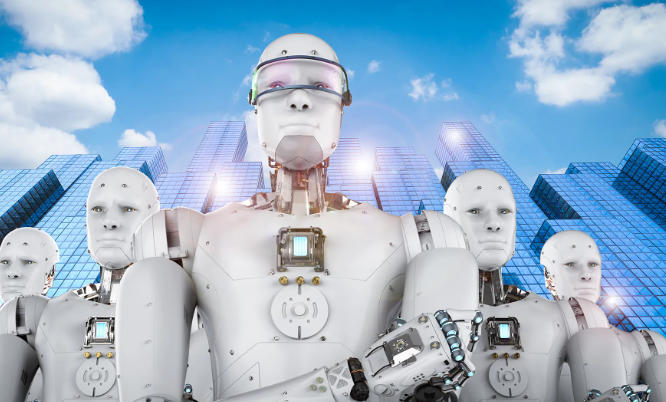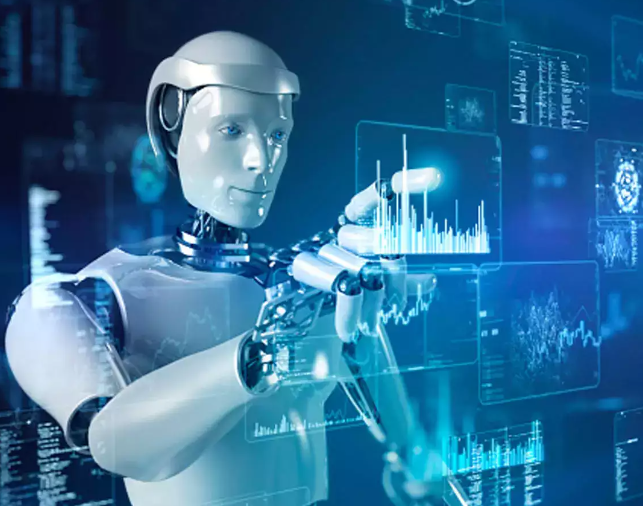What is Artificial Intelligence: A Comprehensive Guide. Artificial Intelligence, often abbreviated as AI, has become a buzzword in today’s tech-driven world. It’s a concept that captures the imagination and sparks curiosity. But what exactly is artificial intelligence? In this article, we’ll delve into the world of AI, exploring its definition, applications, challenges, and the impact it has on our lives.
What is Artificial Intelligence: A Comprehensive Guide
Introduction to Artificial Intelligence
Artificial Intelligence refers to the development of computer systems that can perform tasks that typically require human intelligence. These tasks encompass a wide range of activities such as problem-solving, decision-making, speech recognition, language translation, and visual perception.
Understanding AI: From Fiction to Reality
AI was once a subject of science fiction, often portrayed as sentient robots or computers with human-like thinking. However, the reality of AI is more nuanced. It involves creating algorithms that allow machines to process data, recognize patterns, and make decisions based on that data.
Types of Artificial Intelligence
Narrow or Weak AI
Narrow AI refers to AI systems designed and trained for a specific task. These systems excel in their designated tasks but lack the ability to perform tasks beyond their scope. An example is virtual personal assistants like Siri and Alexa.
General or Strong AI
General AI, still largely theoretical, would possess human-like cognitive abilities. This AI could understand, learn, and apply knowledge across various tasks, just like a human.
Artificial Superintelligence
Artificial Superintelligence would surpass human intelligence in almost every aspect. This level of AI could potentially outperform the brightest minds across all domains.
How AI Works: The Core Concepts
Machine Learning
Machine Learning is a subset of AI that enables machines to learn from data and improve their performance over time. It involves training algorithms on large datasets to make predictions or decisions without being explicitly programmed.
Neural Networks
Neural Networks are inspired by the human brain’s interconnected neurons. They process information in layers, with each layer extracting and transforming features from the data.
Deep Learning
Deep Learning involves neural networks with multiple layers, allowing for complex pattern recognition and decision-making. It’s behind breakthroughs in image and speech recognition.
Applications of Artificial Intelligence
Healthcare
AI is revolutionizing healthcare with applications like disease diagnosis, personalized treatment plans, and drug discovery.
Finance
In the financial sector, AI analyzes market trends, manages investments, and detects fraudulent activities.
Transportation
Self-driving cars rely on AI to navigate and make split-second decisions to ensure passenger safety.
Entertainment
AI-driven recommendations on streaming platforms and video game opponents that adapt to players’ strategies are examples of AI in entertainment.
Customer Service
Chatbots and virtual assistants handle customer queries and provide support around the clock.
The Benefits AI Brings to Society
AI streamlines processes, enhances efficiency, reduces human error, and opens up new possibilities for scientific research and exploration.
Ethical and Privacy Concerns
AI’s rapid advancement has raised concerns about bias in algorithms, invasion of privacy through data collection, and the potential for job displacement.
The Future of AI: Possibilities and Speculations
The future might bring advancements in AI that we can’t currently fathom. We could see AI contributing to solving complex global issues and enabling scientific breakthroughs.
AI in Popular Culture: Separating Fact from Fiction
Pop culture often portrays AI in dystopian or overly optimistic scenarios. Separating fact from fiction is crucial for understanding AI’s real potential and limitations.
Conclusion: The Continuing Evolution of AI
In conclusion, artificial intelligence has come a long way from its sci-fi origins to becoming an integral part of our lives. Its transformative potential is evident across various industries, and as we navigate the path ahead, ethical considerations and responsible development will play a pivotal role in shaping AI’s impact on society.
Frequently Asked Questions
Is AI the same as robotics?
No, AI refers to the intelligence exhibited by machines, while robotics involves the physical construction and operation of machines.
Can AI replace human creativity?
AI can mimic certain creative processes, but true human creativity is deeply complex and not easily replicated.
What are some concerns regarding AI ethics?
Bias in algorithms, job displacement, and privacy breaches are key ethical concerns associated with AI.
Will AI take over all human jobs?
While AI might automate certain tasks, many jobs require human empathy, critical thinking, and creativity, which AI can’t fully replicate.
Where can I learn more about the current state of AI?
For more information, you can explore reputable online resources, research papers, and technology news platforms.





